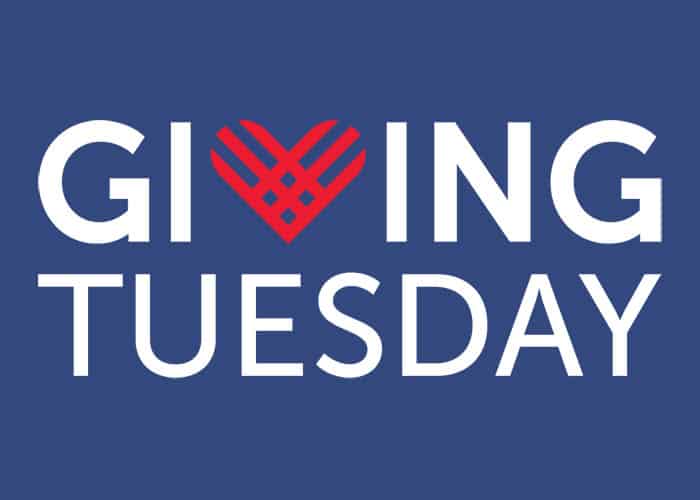Immunotherapy:
For Breast Cancer
How is Immunotherapy for Breast Cancer Changing the Outlook for Patients?
Reviewed by:
Rebecca A. Shatsky, MD
University of California, San Diego Health System
Immunotherapy for breast cancer is developing rapidly as new studies demonstrate improved outcomes in subsets of breast cancer.
Breast cancer is one of the most commonly diagnosed cancer types among women globally. In the United States alone, there will be an estimated 300,000 cases of breast cancer diagnosed in 2023 along with 44,000 deaths. Approximately 1 in 8 women and about 1 in 1,000 men will develop invasive breast cancer at some point in their lives. Thus, the need for effective, lasting breast cancer treatment is urgent.
Increased risk for breast cancer is associated with a personal or family history of the disease and inherited genetic mutations in breast cancer susceptibility genes. These include BRCA1 and BRCA2 and other less common inherited gene mutations. An inherited predisposition to develop breast cancer accounts for approximately 5%-10% of all breast cancer cases, but is rare in the general population (less than 1%). People with BRCA1 and BRCA2 mutations have an estimated 45% to 65% higher risk of developing breast cancer by age 70, though the risk is highest around age 40. People with these mutations should discuss their risk with a genetic counsellor. Other known risk factors include obesity, use of MHT (a hormone therapy that combines progestin and estrogen), high breast tissue density, alcohol consumption, and physical inactivity.
Current methods for breast cancer treatment typically involve surgery if the disease is diagnosed early. Depending on the stage and molecular characteristics of the cancer when diagnosed, breast cancer treatment may involve chemotherapy, hormonal therapy, surgery and/or radiation.
Although breast cancer was once regarded as difficult to treat with immunotherapy because it is immunologically “cold,” clinical studies and new drugs have shown that immunotherapy treatment has the potential to improve outcomes for breast cancer patients.
Breast Cancer Treatment Options
Traditional treatments for breast cancer include chemotherapy, radiation, and surgery. Hormonal therapy, which can reduce levels of estrogen and progesterone, may also be used to prevent disease recurrence in women with hormone receptor-positive tumors.
Immunotherapy is class of treatments that take advantage of a person’s own immune system to help kill cancer cells. There are several immunotherapy options for patients depending on their tumor type.
Targeted Antibodies
- Margetuximab-cmkb (Margenza™): a monoclonal antibody that targets the HER2 pathway; approved in combination with chemotherapy for subsets of patients with advanced breast cancer
- Pertuzumab (Perjeta®): a monoclonal antibody that targets the HER2 pathway; approved for subsets of patients with HER2-positive breast cancer
- Sacituzumab govitecan (Trodelvy®): an antibody-drug conjugate that targets the TROP-2 pathway; approved for subsets of patients with breast cancer
- Trastuzumab (Herceptin®): a monoclonal antibody that targets the HER2 pathway; approved for subsets of patients with HER2-positive breast cancer
- Trastuzumab deruxtecan (Enhertu®): an antibody-drug conjugate that targets the HER2 pathway and delivers toxic drugs to tumors; approved for subsets of patients with advanced breast cancer, including those with low HER2
- Trastuzumab emtansine (Kadcyla®): an antibody-drug conjugate that targets the HER2 pathway and delivers toxic drugs to tumors; approved for subsets of patients with HER2-positive breast cancer
Immunomodulators
- Dostarlimab (Jemperli): a checkpoint inhibitor that targets the PD-1/PD-L1 pathway; approved for subsets of patients with advanced breast cancer that has DNA mismatch repair deficiency (dMMR)
- Pembrolizumab (Keytruda®): a checkpoint inhibitor that targets the PD-1/PD-L1 pathway; approved in combination with chemotherapy for patients with metastatic, PD-L1-positive triple-negative breast cancer (TNBC), including for treatment prior to and after surgery; also approved for subsets of patients with advanced breast cancer that has high microsatellite instability (MSI-H), DNA mismatch repair deficiency (dMMR), or high tumor mutational burden (TMB-H)
Although treatment with trastuzumab and other HER2-directed therapies are associated with significant efficacy, only patients with the highest levels of HER2 expression, representing approximately 20% of breast cancer patients, have the potential to respond. Moreover, many patients expressing high levels of HER2 progress or relapse despite receiving the best HER2-directed treatments, and thus require novel treatment approaches. Additionally for patients with ER+ or PR+ breast cancer who are refractory to endocrine therapy, or patients who have triple negative breast cancer, targeted therapeutic options remain quite limited. New therapeutic strategies for breast cancer are needed to improve clinical outcomes for breast cancer patients, particularly those with advanced disease. Other immunotherapies are currently being tested in breast cancer clinical trials and several have shown impressive results.
Because current treatments are unlikely to cure advanced breast cancer, patients in otherwise good health are encouraged to think about taking part in clinical trials. Go to our Clinical Trial Finder to find clinical trials of immunotherapies for breast cancer that are currently enrolling patients.
CRI’s Impact in Breast Cancer
Our organization’s commitment to breast cancer research and breast cancer immunotherapy goes back nearly four decades, when we first began to fund the New York Metropolitan Breast Cancer group—a coalition of physicians and surgeons from over 15 medical institutions working together to develop a coordinated breast cancer diagnosis and treatment program.
At the Cancer Research Institute, we’re invested in the promise of effective breast cancer immunotherapy treatment and are dedicated to developing lifesaving cures for all cancers. Some of CRI’s contributions to the immunological understanding and treatment of breast cancer include:
- One of the first signs that breast cancer was subject to immunosurveillance and therefore could potentially benefit from approaches designed to induce or enhance anti-breast cancer immune responses, discovered by Maurice Black, MD, a CRI-funded grantee at New York Medical College from 1983-1987.
- One of the first to clone the HER2/neu oncogene, a key milestone enabling the development of trastuzumab and other HER2 directed therapies for HER2+ breast cancer, done by Mien-Chie Hung, PhD, a CRI Postdoctoral Fellow at the Whitehead Institute for Biomedical Research from 1983 to 1986.
- The synthetic double-stranded RNA known as Poly-ICLC is being tested as an adjuvant in several CRI-funded vaccine trials to determine its effect in boosting the anti-cancer immune response
- Enhance T cell responses against tumors by using “smart” polymers to create a new type of cancer vaccine and to test this new strategy in a preclinical model of human breast cancer, developed by John T. Wilson, a CRI Postdoctoral Fellow at the University of Washington from 2011-2014.
- Study of an immunosuppressive pathway that is activated in tumor-associated immune cells in breast cancer models, carried out by Ming Li, PhD, a CRI CLIP Investigator at Memorial Sloan Kettering Cancer Center from 2012-2014.
You can explore CRI’s current research into breast cancer in our funding directory.
Breast Cancer Clinical Trials Targets
Discover the different proteins, pathways, and platforms that scientists and physicians are pursuing to develop new cancer treatments. Use this information to consider your clinical trial options.
Targeted antibodies are proteins produced by the immune system that can be customized to target specific markers (known as antigens) on cancer cells, in order to disrupt cancerous activity, especially unrestrained growth. Antibody-drug conjugates (ADCs) are equipped with anti-cancer drugs that they can deliver to tumors. Bi-specific T cell-engaging antibodies (BiTEs) bind both cancer cells and T cells in order to help the immune system respond more quickly and effectively. Antibody targets under evaluation in breast cancer clinical trials include:
- Angiopoietin: a protein that can promote blood vessel formation in tumors
- DLL/Notch: a pathway that can promote cell growth
- EGFR: a pathway that controls cell growth and is often mutated in cancer
- HER2: a pathway that controls cell growth and is commonly overexpressed in breast cancer and is associated with metastasis, or disease spread
- Mesothelin: a protein that’s commonly overexpressed in breast cancer and may aid metastasis
- TROP2: a protein that’s commonly overexpressed in cancer and appears to aid cancer cell self-renewal, proliferation, invasion, and survival
- VEGF / VEGF-R: a pathway that, when targeted with treatment, can prevent tumor blood vessel formation
Find an Immunotherapy Clinical Trial
Create a profile and fill out a questionnaire to identify immunotherapy clinical trials for which you may be eligible.
Need more information? Learn more about clinical trials.



